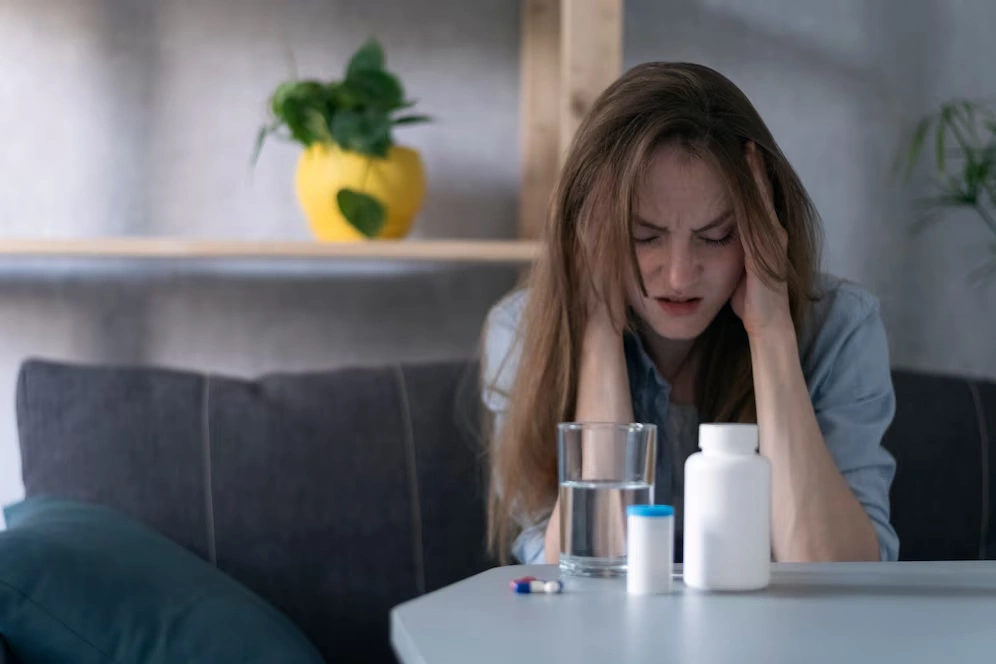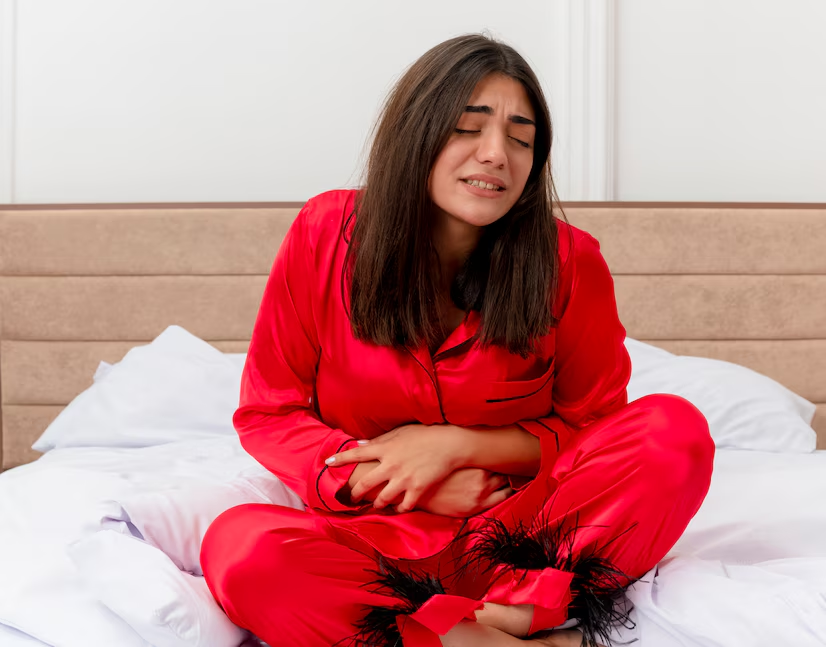Zopiclone: An In-Depth Guide

What is Zopiclone?
Table of Contents
ToggleZopiclone is a prescription medication commonly used to treat insomnia and other sleep disorders. As a non-benzodiazepine hypnotic agent, it is classified as a cyclopyrrolone. Zopiclone works by enhancing the activity of gamma-aminobutyric acid (GABA), a neurotransmitter in the brain that promotes relaxation and induces sleep. This medication is available in various dosages, with 7.5 mg being the most commonly prescribed strength.
How Does Zopiclone Work?
Zopiclone increases the efficiency of GABA, which helps calm the central nervous system. By boosting GABA activity, Zopiclone helps reduce the time it takes to fall asleep, extend the duration of sleep, and decrease the number of nighttime awakenings. This results in improved sleep quality, allowing users to wake up feeling refreshed and well-rested.
Uses of Zopiclone 7.5 mg
Zopiclone 7.5 mg is primarily used for the short-term treatment of insomnia, particularly in cases where the condition is severe, disabling, or causing extreme distress. Specific uses include:
- Sleep initiation: Helping individuals fall asleep faster.
- Sleep maintenance: Reducing nighttime awakenings and prolonging sleep duration.
- Improving sleep quality: Ensuring a more restful and restorative sleep experience.
Zopiclone 7.5 mg Dosage and Administration
The standard recommended dose of Zopiclone for adults is 7.5 mg taken just before bedtime. It is essential to follow the prescribed dosage and not to exceed it, as higher doses can increase the risk of side effects. Zopiclone should be taken on an empty stomach or after a light meal to enhance its effectiveness. It is crucial to take Zopiclone only when a full night’s sleep (7-8 hours) is possible, to avoid next-day drowsiness and impaired functioning.
Potential Side Effects of Zopiclone
Like all medications, Zopiclone can cause side effects. While many users experience minimal or no side effects, others may encounter:
Common Side Effects:
- Drowsiness: The most frequently reported side effect, often experienced the day after taking the medication.
- Bitter taste: Some users report a metallic or bitter taste in their mouth.
- Dry mouth: A common but usually mild side effect.
- Headache: Some individuals may experience headaches.
- Dizziness: Feeling lightheaded, especially when getting up quickly from a sitting or lying position.
Less Common but Serious Side Effects:
- Memory problems: Difficulty recalling events that occurred while under the influence of the medication.
- Mood changes: Unusual changes in mood or behavior, including depression or irritability.
- Allergic reactions: Swelling, rash, itching, or difficulty breathing.
Precautions and Warnings
Zopiclone is generally safe when used as prescribed, but certain precautions and warnings should be considered:
- Dependency: Prolonged use of Zopiclone can lead to physical and psychological dependence. It is typically prescribed for short-term use, generally not exceeding four weeks.
- Withdrawal: Abruptly stopping Zopiclone after prolonged use can cause withdrawal symptoms such as anxiety, agitation, and sleep disturbances.
- Alcohol: Avoid alcohol while taking Zopiclone, as it can increase the sedative effects and risk of severe side effects.
- Pregnancy and breastfeeding: Zopiclone is not recommended during pregnancy or breastfeeding due to potential risks to the baby.
- Elderly patients: Older adults may be more sensitive to the effects of Zopiclone and may require a lower dose.
Tips for Safe Use of Zopiclone
- Follow the prescription: Always use Zopiclone as directed by your healthcare provider.
- Do not share: Never share your medication with others, even if they have similar symptoms.
- Storage: Store Zopiclone at room temperature, away from moisture and heat.
- Inform your doctor: Always inform your healthcare provider about any other medications you are taking, as well as any medical conditions you have.
Alternatives to Zopiclone
While Zopiclone is an effective treatment for insomnia, it is not suitable for everyone. Some alternative treatments include:
- Cognitive Behavioral Therapy for Insomnia (CBT-I): A structured program that helps individuals identify and replace thoughts and behaviors that cause or worsen sleep problems with habits that promote sound sleep.
- Lifestyle changes: Improving sleep hygiene through regular sleep schedules, avoiding caffeine and heavy meals before bedtime, and creating a comfortable sleep environment.
- Other medications: Depending on the cause of insomnia, doctors may prescribe other medications such as melatonin, antidepressants, or other sleep aids.
Read more: Top 10 Good Sleep Tips For A Restful Night
FAQs About Zopiclone
What is insomnia?
Insomnia is a frequent sleep problem defined by difficulties falling asleep, staying asleep, or both. People with insomnia often experience poor sleep quality and may wake up feeling unrefreshed. Insomnia can be acute (short-term) or chronic (long-term), with various underlying causes, including stress, anxiety, medical conditions, and poor sleep habits.
What causes insomnia?
Several reasons can contribute to insomnia, including:
- Stress and anxiety: Concerns about job, school, health, or family might keep your thoughts active at night, making sleep difficult.
- Medical conditions: Conditions such as chronic pain, asthma, and gastrointestinal problems can interfere with sleep.
- Medications: Some medications, including those for asthma, depression, and high blood pressure, can disrupt sleep.
- Sleep habits: Irregular sleep cycles, stimulating activities before bedtime, and an unpleasant sleeping environment can all contribute to insomnia.
- Caffeine, nicotine, and alcohol: Stimulants like caffeine and nicotine can interfere with sleep, while alcohol can disrupt sleep patterns.
How to cure insomnia in 12 minutes?
While curing insomnia in just 12 minutes may not be realistic, incorporating relaxation techniques and good sleep hygiene can significantly improve sleep quality. Here are a few tips:
- Practice deep breathing: Deep, leisurely breaths can assist to relax your mind and body.
- Progressive muscle relaxation: Tense and then relax each muscle group, beginning with your toes and progressing up to your head.
- Visualization: Imagine a peaceful and relaxing scene, such as a beach or a forest.
- Mindfulness meditation: Focus on your breathing and bring your attention to the present moment, letting go of any worries or thoughts.
What happens if you take Zopiclone and stay awake?
Taking Zopiclone and attempting to stay awake can lead to several undesirable effects. You may experience severe drowsiness, dizziness, and impaired coordination, which can increase the risk of accidents and injuries. Cognitive functions, such as decision-making and memory, may also be impaired. Additionally, staying awake while under the influence of Zopiclone can lead to unusual behaviors, such as sleepwalking or engaging in activities without full awareness. It is essential to take Zopiclone only when you can commit to a full night’s sleep (7-8 hours) to avoid these risks.
How long does Zopiclone take to work?
Zopiclone typically takes about 30 minutes to one hour to start working. It is designed to be taken just before bedtime to help you fall asleep quickly. For best results, take Zopiclone on an empty stomach or after a light meal, and ensure you are ready to go to bed immediately after taking the medication to maximize its effectiveness.
Is Zopiclone addictive?
Yes, Zopiclone can be addictive, especially if used for an extended period or in higher doses than prescribed. It is generally recommended for short-term use, typically not exceeding four weeks, to minimize the risk of dependence. Signs of addiction include requiring bigger dosages to obtain the same effect, suffering withdrawal symptoms when not taking the prescription, and being unable to sleep without it. If you are concerned about dependency, consult your healthcare provider for alternative treatments and strategies to manage your sleep issues.
Can you take Zopiclone during the day for anxiety?
Zopiclone is not recommended for use during the day, as it is specifically formulated as a nighttime sleep aid. Taking Zopiclone during the day can cause significant drowsiness, impaired coordination, and cognitive impairment, making it unsafe for activities that require alertness, such as driving or operating machinery. If you need treatment for anxiety during the day, discuss alternative medications or therapies with your healthcare provider that are better suited for daytime use.
How long does Zopiclone stay in your system?
The half-life of Zopiclone is approximately 5-6 hours, meaning it takes this amount of time for the concentration of the drug in your body to reduce by half. Generally, Zopiclone can stay in your system for about 12-24 hours, depending on various factors such as age, liver function, and overall health. Its sedative effects typically last for 7-8 hours, which is why it is important to ensure you have enough time to sleep after taking it. Residual effects, such as drowsiness, may be felt the next day, particularly if you did not get a full night’s sleep.
Read more: Insomnia Meaning & Symptoms | Understanding Sleep Disorders
Conclusion
Zopiclone 7.5 mg is an effective medication for treating insomnia and improving sleep quality. While it offers significant benefits, it is crucial to use it responsibly and under the guidance of a healthcare professional to minimize the risk of side effects and dependency. For those struggling with sleep disorders, Zopiclone can be a valuable tool in achieving better, more restful sleep. Always consult with your doctor before starting or stopping any medication to ensure it is safe and appropriate for your specific needs.

Noah Harrison, based in Australia, is an experienced content writer with a strong focus on the medical industry. Holding a master’s degree in English literature, Noah Harrison combines exceptional writing skills with in-depth knowledge of medical science to create informative and engaging content. Read more about Noah Harrison.





